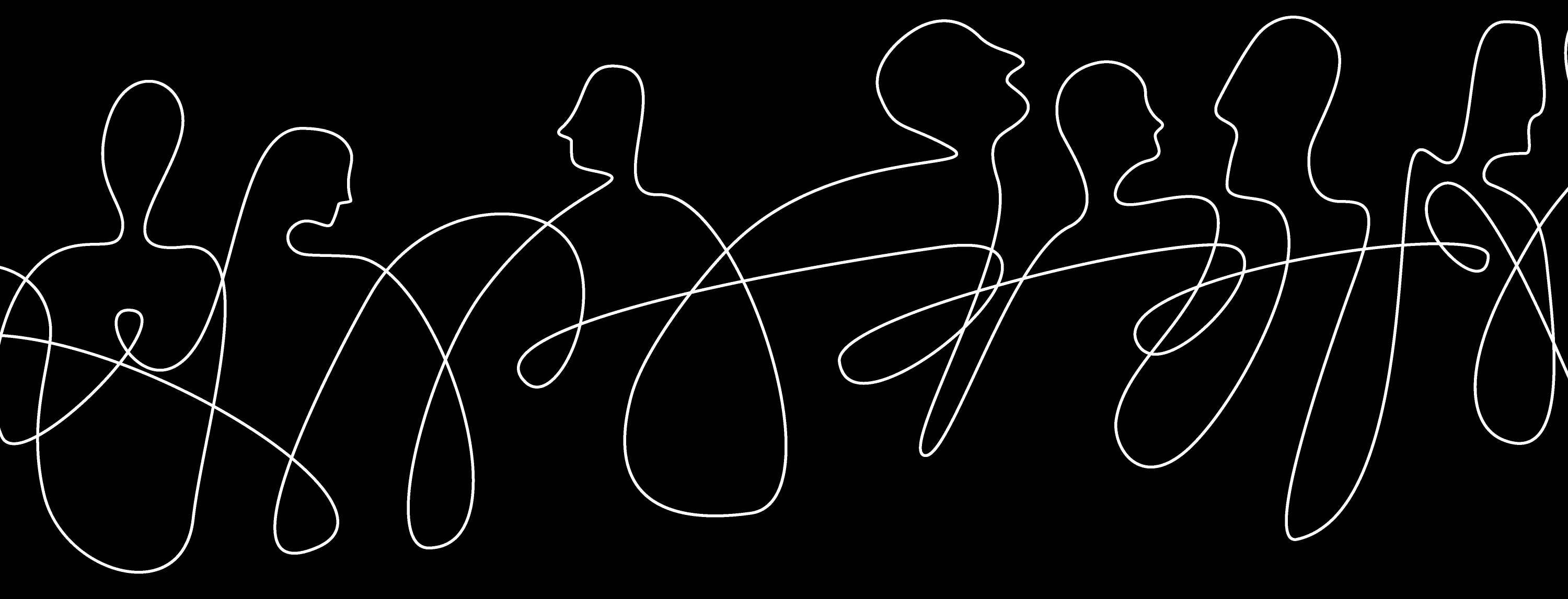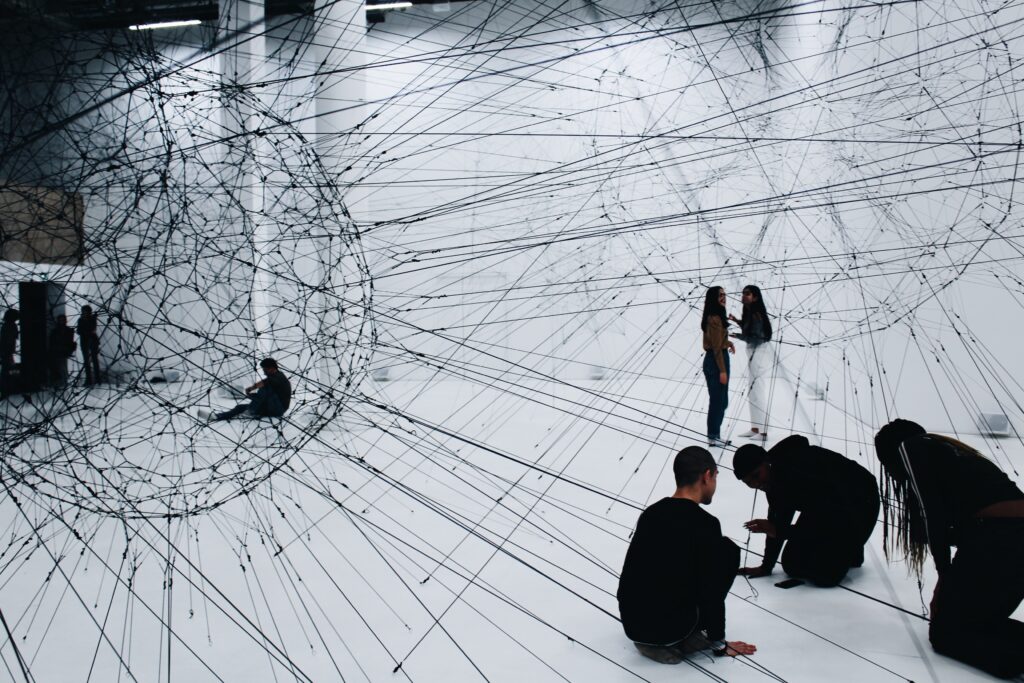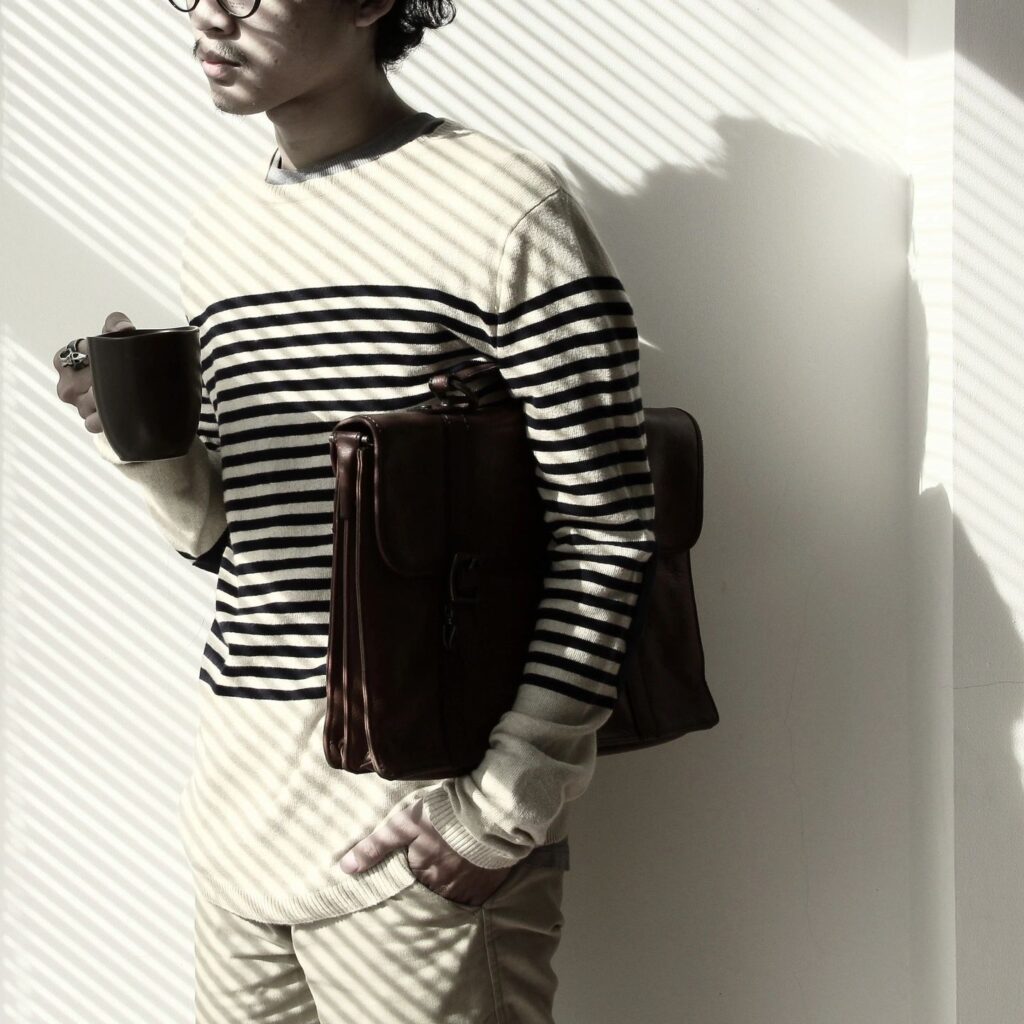
mission statement
To help practitioners and scholars address the real-world challenges of creative work. We conduct rigorous analyses of case studies in concert with other methodologies to re-appropriate the concept of “creativity” and align it with lived experience. Through this research we develop a framework for participatory creativity and new tools for practitioners. We then make the research and other resources available to people participating in creative work and raise new questions for other scholars in the field of creativity research.

introduction
The Participatory Creativity Lab investigates how people participate in change. This participation involves constantly shifting social, technological, political, and conceptual dynamics. It is not something people do alone. Many people in different roles are involved, often over long periods of time. The material and natural worlds also play crucial roles. Creative work literally takes form through interactions with paint, paper, musical instruments, lab equipment, culinary ingredients, information technologies, and on and on. The ideas then spread and inspire others through books, journals, museums, online posts, etc.
For people participating in creative work, their commitment requires courage, persistence, luck, and knowledge. Depending on what roles they take up, the work can require extraordinary amounts of energy and sacrifice. The result – new idea or practice – may solve the problem at hand but will also produce unexpected consequences. That is the nature of complex systems. Creativity is, thus, socially, materially, and temporally distributed – a complex, emergent process. And hard work.
These principles are the foundation of the participatory creativity framework, which has been established by multiple scholars over the last decade. Drawing from systems, developmental, sociocultural, and distributed views of creativity, the participatory framework tries to provide a realistic and practical perspective from which to consider whether, when, how and why to engage in creative work.

Featured case
One branch of our research includes detailed case studies of how people contribute to creative work as part of larger, complex, social and material systems. By studying the work of well-known people from a wide range of domains and times, we reconsider the traditional, unrealistic assumptions of extreme individualism, exploring, instead, how we can think about real-world examples of creativity as participatory processes. Building off the case study methods that Howard Gruber and his associates designed for studying creative development across lifespan, we apply similar, rigorous, triangulated methods in applying the participatory framework. The stories are thought-provoking and relevant to creative work in today’s, complex world. Some raise difficult questions, and many are inspiring.

meet the team
Dr. Michael Hanchett Hanson is a developmental psychologist; leader of the Participatory Creativity Lab; a founding member and Secretary of the International Society for the Study of Creativity and Innovation (ISSCI); Director of the Masters Concentration in Creativity and Cognition at Teachers College, Columbia University; and President of Contexts R+D, a research and consulting practice. Michael has conducted research and consulted on curriculum design for arts organizations, youth development programs, individual schools, boards of education and corporations.
Ana Inés Jorge Artigau is a Doctor in Communication form Austral University in Argentina where she currently works as an associated professor both at undergraduate and graduate level. Her area of interest is the intersection between Communication and Creativity. She studied with and worked for Eliseo Verón for several years. Her thesis was a case study about his contribution to the field. Her current research interest and teaching courses focus on writing a case study on the legacy of Gregory Bateson and on the application of Worldbuilding as a framework for creativity. She wants to focus on idea generation in family systems.
Anna Amato is a Ph.D. student at NYU in Educational Communication and Technology. She received her M.A. at Teachers College, Columbia University in Cognitive Studies in Education, focusing on creativity and learning. Her current research interests include data literacy and the arts. She focuses on understanding how narrative-driven arts can critically engage students in K-12 with social issues through or about data.
Arnav completed his Master of Arts in Cognitive Psychology at Teachers College, Columbia University conducting research on creativity, complexity theory, and education. Currently, Arnav is an education consultant in Mumbai, India teaching academic and designing curriculum.
Jacqueline Cofield is a doctoral candidate in curriculum studies at Columbia University’s Teachers College. Her research centers on intersectional power dynamics between the arts, teaching, and learning. Jacqueline curates global transcultural experiences for educators, students, and artists by collaborating with leading museums, and arts and educational institutions.
Joseph I. Eisman is a doctoral student of educational psychology at Temple University, an educational consultant, and experiential educator who has worked on five continents. His research focuses on emotions in creativity, motivation, and identity.
Sam is currently a PhD candidate in the Philosophy and Education Program at Teachers College, Columbia University. Her research interests are in Deweyan aesthetics, democratic classrooms, and epistemic injustice in youth, particularly how all three of these play into preparation programs for undergraduate teacher candidates. Lately, she’s been interested in patterns of 'movement' in classroom activities and their aesthetic significance in creating spaces for belonging. When not at her studies, Sam serves as an academic dean for the Summer Institute for the Gifted (SIG), as well as an adjunct professor and course assistant.
Sharon Christy Koe completed her graduate work at Teachers College, Columbia University. While there, her primary focus was on how Indonesia’s education and concept of a nation intersected. Currently based in Indonesia, she designs curriculums to bridge critical thinking into the classroom. She also builds movement-based studios where individuals treat and heal from chronic pain for good.
Stella Wasenitz holds a degree from University College Maastricht and Teachers College Columbia University, where her work generally related to critical theory and philosophy of education. As a member of the ISSCI research lab, she is particularly interested in the emergence of subversive and unlikely art forms and the how complexity is represented in art. Currently, Stella teaches and pursues a doctoral degree at the University of Cologne in the field of socio-economic education.
Yun is a Ph.D. candidate in the Cognitive Science in Education program at Teacher College Columbia University. His research interests are in the representation of problems, development of problem-solving techniques/tools, and socio-cultural aspects of creativity. In his spare time, Yun is a lifetime martial artist and fan of mystery fiction.
contact us

Help us help you!
Let us know the details on your project, or whatever it is you're hoping to accomplish. We'll let you know if it's something we can help with. We look forward to hearing from you!
Participatory Creativity Lab
info@participatorycreativitylab.org
subscribe
Sign up to hear what the fuss is all about!